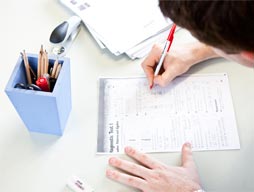Rationale
 At Boonah State School we committed to our students’ learning and wellbeing. As part of
this commitment, we respond to the latest research and evidence-based strategies proven
to value add to students’ learning and wellbeing.
At Boonah State School we committed to our students’ learning and wellbeing. As part of
this commitment, we respond to the latest research and evidence-based strategies proven
to value add to students’ learning and wellbeing.
Famed educational researcher, John Hattie, recently discovered that “homework in primary
school has an effect size of zero”. In fact, no study has ever demonstrated any academic
benefit to assigning homework before children are in high school. Furthermore, there isn't a
shred of evidence to support the folk wisdom that homework provides non-academic benefits
at any age -- for example, that it builds character, promotes self-discipline, or teaches good
work habits.
We're all familiar with the downside of homework: the frustration and exhaustion, the family
conflict, time lost for other activities, and possible diminution of children's interest in learning.
But the stubborn belief that all of this must be worth it, that the gain must outweigh the pain,
relies on faith rather than evidence.
Other studies have determined that there may be some benefit to homework, only if it
reinforces content learned that day at school.
With all of this in mind, and in keeping with our commitment to kids, we have developed the
following approach to homework.
Reading 15-30 minutes a night. This can be a child reading to a family member or a family member
reading to their child to model reading behaviours and have rich discussion about what was read.
Reading should be social activity that generates discussion and joy – not a chore.
Soundwaves – links to the sound of the week and list of words will be posted on each class’s dojo
page every Monday. Parents are encouraged to discuss and practice the sound and words through
the week.
Online spelling activities will be available through the link.
Discuss your child’s inquiry question for the term – available through the curriculum placemat
which is sent home in week 3 of each term. You may like to do some research together to find
further information for the questions students generate. This will add richness of knowledge to
class discussions and understanding.
There will be no formal homework sheet sent home to be handed in each week.
We hope that children will
use their time after school to play, read, exercise, talk, create memories and contribute to family and
community.